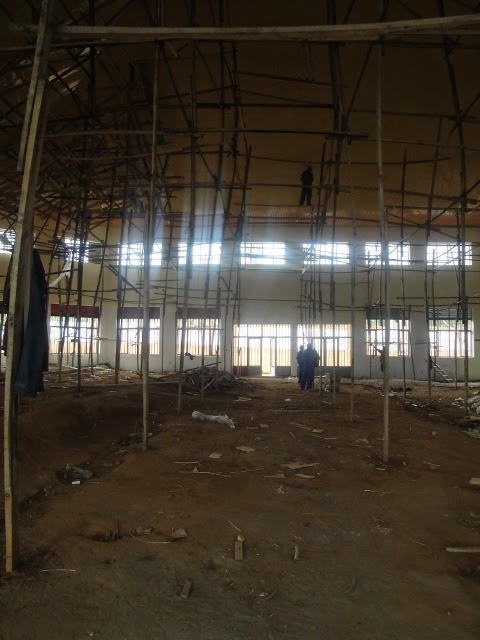This is a very number heavy post with lots of links, so please bear with me. :) If you are interested in more information about this very important topic, then go ahead and click on any of the links. But I was a brief as I could be, with possible sacrifices in the economic and emotional impact of this devastating pandemic.
Malaria is
an interesting disease partly because it is very possible to eradicate it from
a country. For example, the United
States used to have widespread Malaria but eliminated it. When I went to Ghana for
six weeks in 2011, three people I knew got Malaria during that time and virtually
everyone got it almost every year.
Before I’d been there, I thought you simply died from Malaria. The end. No
chance for recovery. However, there were
constantly commercials on TV about how inexpensive treatment is, so please
treat your kid when s/he gets it. It was
considered just a part of life, similar to the flu. That is part of the reason Ebola is kind of
hard to control in West Africa right now. People are thinking they simply have
Malaria or other endemic diseases and are not too concerned.
However, it is not like that at all in Rwanda. I have
asked several people in Nyamata and Kigali when they last had malaria and they
all have to pause and think about it because it has been many years. However, it has not always been this way, to
illustrate their success, according to the National Institute of Statistics in Rwanda, in 2005 62% of all deaths under 5 were caused by Malaria (1,012 deaths). Comparatively, in 2010 only 13.05% of all deaths under 5 (175 deaths) were caused
by Malaria. That is a huge difference. However, it
is important to note that if you do the math, there were 1632.29 deaths in 2005
vs 1349.99 deaths in 2010. That's unfortunately not
a lot of progress in childhood mortality.
But I digress.
So how did they make so much progress in such a short
time? In 2005, President Bush started
the President’s Malaria Initiative around the world which has been a huge
help. There are four main measures they
take:
-I sleep under a
mosquito net but I doubt it is treated anymore as it is fairly old
-“83%of households nationwide own at least one mosquito net and 71% of children
under five had slept under a mosquito net the night before the survey. Overall
73% of pregnant women age 15-49 slept under a mosquito net the night before the
survey.”
-Free
treated mosquito nets are distributed to women at their first antenatal doctor
visit
-94% of all children
diagnosed with Malaria are treated within 24 hours (compared to 62% in 2008)
My own contribution is that the country is very clean,
which makes it harder for mosquitoes to find breeding grounds (although the
buggers are still around to bite me!) A
big part is the outlawing of plastic bags in the country, which then can’t fill
up with stagnant water.
Six districts account for 60% of the Malaria burden and the rest of the country is not as concerned about
Malaria. The goal is to achieve zero
Malaria deaths in Rwanda by 2017, which is lofty, impressive and actually
appears achievable if the progress is kept up. However, with this success comes
the problem of complacency and the possibility of a resurgence. Despite the statistics quoted above, I
know many people (Rwandan and expat) in urban areas who do not use a mosquito
net because they do not see Malaria as a problem. Expats do not take Malaria preventative pills
(I stubbornly refuse to stop, you can see the prescription bottle on my
nightstand in the picture above). At the
same time, people are losing their immunity to Malaria as they get fast acting
treatments or are not exposed to the pathogen at all. And the parasite and
insects are starting to become resistant to the nets and the treatments. But no one is too concerned right now because
there is so much progress.
.jpg)
.jpg)




.jpg)

.jpg)















.jpg)
